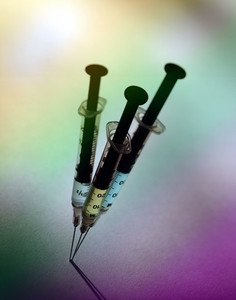A five-day international anti-counterfeiting operation, called ‘Operation Pangea II’ and involving regulators, police and customs officials from 24 countries, has resulted in a series of arrests and the seizure of 167,000 potentially harmful medical products or ‘counterfeit pills’.
Operation Pangea II seizes 167,000 counterfeit pills
Home/Policies & Legislation
|
Posted 15/12/2009
 0
Post your comment
0
Post your comment

In response to an ever-increasing number of websites supplying dangerous and illegal medicines, Operation Pangea II, involving 24 countries, was co-ordinated by INTERPOL and the World Health Organization’s (WHO) International Medical Products Anti-Counterfeiting Taskforce (IMPACT) to highlight the dangers of buying medicines online.
National medicines regulators, police and customs worked closely together on the global operation from 16–20 November 2009, focusing on the three principle components used by an illegal website to conduct their trade – the Internet Service Provider, payment systems and the delivery service.
During the operation, Internet monitoring revealed 751 websites engaged in illegal activity, including offering controlled or prescription only drugs, 72 of which have now been taken down. In addition, more than 16,000 packages were inspected by regulators and customs, 995 packages were seized and nearly 167,000 illicit and counterfeit pills – including antibiotics, steroids and slimming pills, confiscated. A total of 22 individuals are currently under investigation for a range of offences including illegally selling and supplying unlicensed or prescription-only medicines.
“Our primary goal in Operation Pangea II is to protect the public by removing counterfeit and illicit medicines from the market, by shutting down those engaged in illegal sales on the web and by criminally prosecuting those potentially putting the lives of innocent consumers at risk by selling counterfeit or illicit medicines,” said INTERPOL Secretary General Ronald K Noble.
Operation Pangea II increased participating countries over the Pangea II operation in 2008 from 8 to 24 and added police and customs agencies to complement the work of the drug regulatory agencies. In addition, this year’s effort devoted an entire week to the operation, as opposed to the one-day of action in 2008.
“As the very positive results of this global effort are made public, INTERPOL and its member countries will prove again that the Internet is not an anonymous safe haven for those who use it for criminal purposes. We also hope that by raising public awareness about the dangers of illegal Internet pharmacies, consumers will exercise greater care when purchasing medicines on the Internet,” added Secretary General Noble.
“Our thanks go to the police, customs and regulatory officials in the 24 participating countries as well as to our partner international organizations, such as the World Health Organization’s IMPACT, the World Customs Organization and Universal Postal Union, whose tireless efforts and dedication have made Operation Pangea II such a success,” Mr Noble.
The operation was also run with significant support from the Permanent Forum on International Pharmaceutical Crime (PFIPC) the World Customs Organization, the UK’s Medicines and Health Care products Regulatory Agency (MHRA), the US Food and Drug Administration and Immigration and Customs Enforcement, the Royal Canadian Mounted Police and Health Canada.
Countries involved in Operation Pangea II were - Australia, Austria, Belgium, Canada, Czech Republic, Denmark, France, Germany, Ireland, Israel, Italy, Liechtenstein, The Netherlands, New Zealand, Norway, Portugal, Singapore, South Africa, Spain, Sweden, Switzerland, Thailand, the UK and the USA.
Investigations are continuing, with the final results from Operation Pangea II to be released upon their conclusion.
The MHRA made three arrests during raids on suspected locations. These raids found medicines for erectile dysfunction, hair loss, contraception, weight loss, pain relief, asthma, local anaesthesia and steroids, which are worth £300,000, according to the MHRA.
Mr Mick Deats, MHRA Head of Enforcement, explained that “international operation is the only way to deal with an international problem”, adding that Pangea II “is a great example of the collaboration needed to tackle this type of crime”.
Beyond this, there was also collaboration between agencies in each country and region.
At the 2009 American Association of Pharmaceutical Scientists’s Annual Meeting held on 8–12 November 2009 at Los Angeles, USA, Mr Guy Villax, CEO of Hovione, noted that the lack of a relationship between European customs officials and medicine agencies hinders enforcement.
References:
Taylor N. Anti-counterfeiting effort seizes 167,000 pills. In-Pharma Technologist. 2009 Nov 2009.
International operation combats online supply of counterfeit and illegal medicines. INTERPOL media release. 2009 Nov 19.
Source: In-Pharma Technologist; INTERPOL media release
Guidelines
US guidance to remove biosimilar comparative efficacy studies
New guidance for biologicals in Pakistan and Hong Kong’s independent drug regulatory authority
EU accepts results from FDA GMP inspections for sites outside the US

Home/Policies & Legislation Posted 27/01/2026
WHO to remove animal tests and establish 17 reference standards for biologicals

Home/Policies & Legislation Posted 07/01/2026
The best selling biotechnology drugs of 2008: the next biosimilars targets








Post your comment